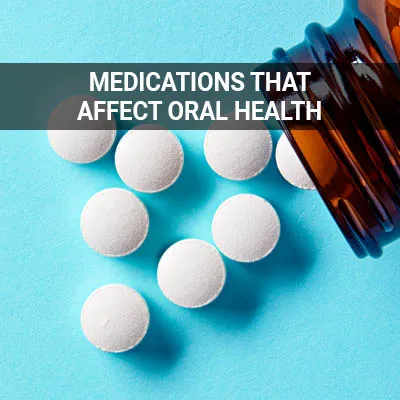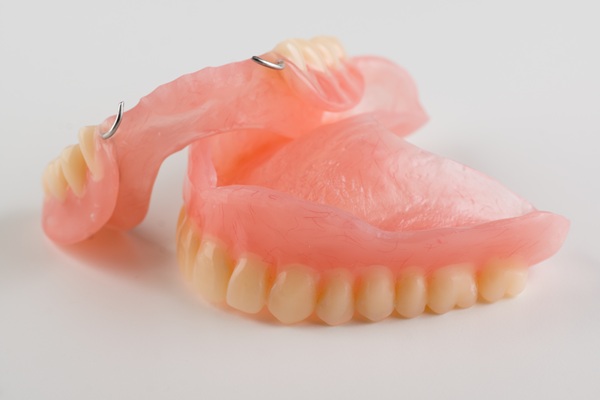Diseases Linked to Dental Health Huntsville, AL
In recent years, general dentistry has evolved to emphasize the connection between oral health and overall well-being. The mouth is the primary entryway for bacteria to reach other parts of the body, contributing to conditions such as cardiovascular disease, diabetes, and respiratory infections. By identifying and treating oral health diseases, general dentists help reduce the risk of their effects on systemic health conditions, supporting patients’ oral and overall health through routine preventive care.
Many oral and systemic health conditions coincide and simultaneously affect one another. Understanding the oral-systemic link and preventive treatments can greatly improve your oral health and overall well-being. At Balmoral Dental Center in Huntsville, we can help you understand the effect of oral diseases on your overall health. Our team can help you better understand the connection between oral and systemic health. Call us at (256) 429-3870 to schedule a consultation today.
Habitual vs. Genetic Reasons for Oral Conditions
A number of oral health conditions stem from habit and behavior. The leading causes of many oral concerns are smoking, excessive alcohol consumption, poor nutrition, and inadequate brushing, flossing, and rinsing. Genetics also plays a role in oral health conditions, ranging from hereditary traits to behaviors during pregnancy.
How to Prevent These Issues
Minor dental concerns, such as cavities and caries, often stem from genes or women who had untreated cavities or caries during pregnancy. However, severe oral conditions, such as gum disease or oral cancer, are often combinations of genes and behavior and worsen through improper hygienic habits. It is possible to diagnose the majority of oral conditions at a young age through preventative treatments that combat disease and decay at the root. The most crucial step in preventing oral and systemic health concerns is a good oral hygiene routine.
Oral Hygiene and Dietary Habits
A part of living a healthy, balanced life is following good oral hygiene and consuming a healthy diet. A good oral hygiene routine entails these habits:
- Brushing twice a day
- Flossing once a day
- Using an antibacterial (antiseptic) mouthwash
- Going to a dentist every six months for checkups and cleanings
- Replacing toothbrushes (or electric toothbrush heads) every three months
A tooth-friendly diet can also help strengthen teeth and gums against decay and disease. These foods include dairy products, leafy greens, crunchy fruits and vegetables, nuts, and whole grains. Patients should do their best to avoid to limit sugary and acidic foods and drinks. Instead, they should stay hydrated with fluoridated water.
“A part of living a healthy, balanced life is following good oral hygiene and consuming a healthy diet.”
Heart Conditions
Heart Disease
Poor oral health increases the risk of bacteria and infection entering the bloodstream, particularly affecting patients with artificial heart valves. The Mayo Clinic found that "heart disease, clogged arteries, and stroke might be linked to the inflammation and infections that oral bacteria can cause." Periodontal disease, a severe form of gum disease, is associated with an increased risk of developing a heart condition.
Endocarditis
Endocarditis is an infection in the inner lining of the heart chambers caused by bacteria in the bloodstream. Bacteria, fungi, infections, and viruses attach to certain parts of the heart and clog the heart chambers or valves (endocardium). Going without treatment can lead to various health complications and fatal risks.
“Gum disease, and its severe form periodontal disease, is associated with an increased risk of developing a heart condition.”
The Gut and Immune Systems
Gut Health
The gastrointestinal system is primarily affected by oral health despite having a greater bacterial density than the oral cavity. The Journal of Oral Microbiology study concluded that "severe diseases and genetic susceptibility of the host may promote ectopic colonization of oral bacteria." The intestinal tract is a leading pathway for microbes and bacteria to enter the gut and many other body systems. Good oral hygiene, periodontal therapy, prebiotics, and probiotics may reduce oral bacteria in gastrointestinal disorders.
Immunodeficiencies
Immunodeficiencies refer to over three-hundred diseases that affect the body's defense or immune systems, such as HIV/AIDS and Down syndrome. Many of these diseases are primarily genetic, but malnutrition and poor oral hygiene play a major role. The National Institutes of Health found that "bacterial plaque related periodontal diseases seem particularly sensitive to primary deficiencies in the innate immune system." Since an immunodeficient patient's body defenses are weak, the immune system has difficulty fighting infections and bacteria that enter through the mouth.
“Many of these diseases are primarily genetic, but malnutrition and poor oral hygiene play a major role.”
Check out what others are saying about our dental services on Yelp: Diseases Linked to Dental Health in Huntsville, AL
Effects During Pregnancy
Premature Birth
As bacteria enter the body through the oral cavity, various tracts lead to the womb and affect the fetus. According to the Matern Child Health Journal, "Untreated dental disease can lead to infection and inflammation, which have been implicated as significant contributors to preterm birth." In essence, the fetus does attain an inflammatory response to maternal oral infection.
Low Birth Weight
Women who have periodontal disease have also been linked to higher rates of premature birth and low birth weight. Good oral hygiene and care before and during pregnancy have shown a significantly lower number of low birth weight babies. In an article on preventative medicine, researchers found that pregnant women who brushed their teeth thoroughly thirteen or more times a week had normal birth weight outcomes and preterm birth (37 completed weeks of gestation).
“Good oral hygiene and care before and during pregnancy have shown a significantly lower number of low birth weight babies.”
Questions Answered on This Page
Q. Are oral conditions primarily habitual or genetic?
Q. How does poor oral health affect the heart?
Q. How does oral health affect the gut and immune system?
People Also Ask
Q. Are oral conditions genetic or a result of environmental factors?
Q. Am I at high risk for developing oral cancer?
Q. What are the health risks of gum disease?
Treatments for Those Suffering
Prevention
A basic understanding of the oral-systemic connection is integral in addressing health conditions and their effects on the body. A well-balanced, healthy lifestyle consists of a diet low in sugar and high in fruits and vegetables, cutting out all forms of tobacco, reducing alcohol intake, and brushing teeth twice daily with an optimal amount of fluoride (1000 to 1500 ppm). Fluoride is a naturally-occurring mineral that protects the tooth's enamel and is crucial for maintaining good oral hygiene.
Treatments
Minor treatments, such as cavities and caries, require minimally-invasive treatments that remove the infection or decay and are covered with a filling, crown, or sealant. More invasive procedures, such as flap surgery, bone grafting, extractions, and implants, are performed for gum disease, oral cancers, flap disease, or other severe conditions. The earlier a condition is diagnosed, the more effective and successful the treatment is.
Frequently Asked Questions About Diseases Linked to Dental Health
Q. Why is patient education important?
A. We believe that dentist-patient relationships should be collaborative, meaning the patient takes an active part in their own dental care. Many patients do not understand the link between oral health and their systemic health conditions. Fortunately, patient education can empower them to make informed decisions about their dental and general health.
Q. Is there a link between chronic inflammation and periodontal disease?
A. Yes. Chronic gum inflammation is one of the top causes of periodontal diseases. When periodontal disease occurs, it creates pockets between the gums and teeth and fills them with bacteria, plaque, and tartar. If left untreated, these pockets become deeper over time, leading the inflammation to spread to other parts of the body.
Q. How does smoking factor into the oral-systemic connection?
A. Tobacco products affect the oral cavity just as they affect all other systems of the body. It allows numerous chemicals to enter the body and also allows bacteria to flow through several other bodily systems. Additionally, it limits saliva flow, which causes bacteria to stick to the teeth and gums. This may lead to plaque and infections.
Q. Can a general dentist identify symptoms of systemic disease during a dental checkup?
A. Many systemic diseases can cause tooth decay and tooth loss. Many are also linked to periodontal disease, which is associated with harmful bacteria linked to various conditions. If your medical, family, or dental history indicates risk factors, our team may recommend scheduling an appointment with your primary care provider for a medical diagnosis. Additionally, we can conduct oral cancer screenings to catch the disease in its early stages and refer you to a specialist for additional treatment.
Q. What is the healthy mouth baseline and what is its role in general dentistry?
A. The healthy mouth baseline is what the mouth should look like when it is in ideal health. We will go over this baseline with you during your initial consultation and compare and contrast it to your own mouth. Then, our team will devise a treatment plan custom-made to your unique needs.
Dental Terminology
Learn More Today
If you are interested in better understanding the link between oral and overall health, call us at 256-429-3870 to set up an appointment.
Helpful Related Links
- American Dental Association (ADA). Glossary of Dental Clinical Terms. 2025
About our business and website security
- Balmoral Dental Center was established in 2015.
- We accept the following payment methods: Cash, Check, MasterCard, and Visa
- We serve patients from the following counties: Madison
- We serve patients from the following cities: Huntsville
- National Provider Identifier Database (1699772814). View NPI Registry Information
- Healthgrades. View Background Information and Reviews
- Norton Safe Web. View Details
- Trend Micro Site Safety Center. View Details
Back to top of Diseases Linked to Dental Health












